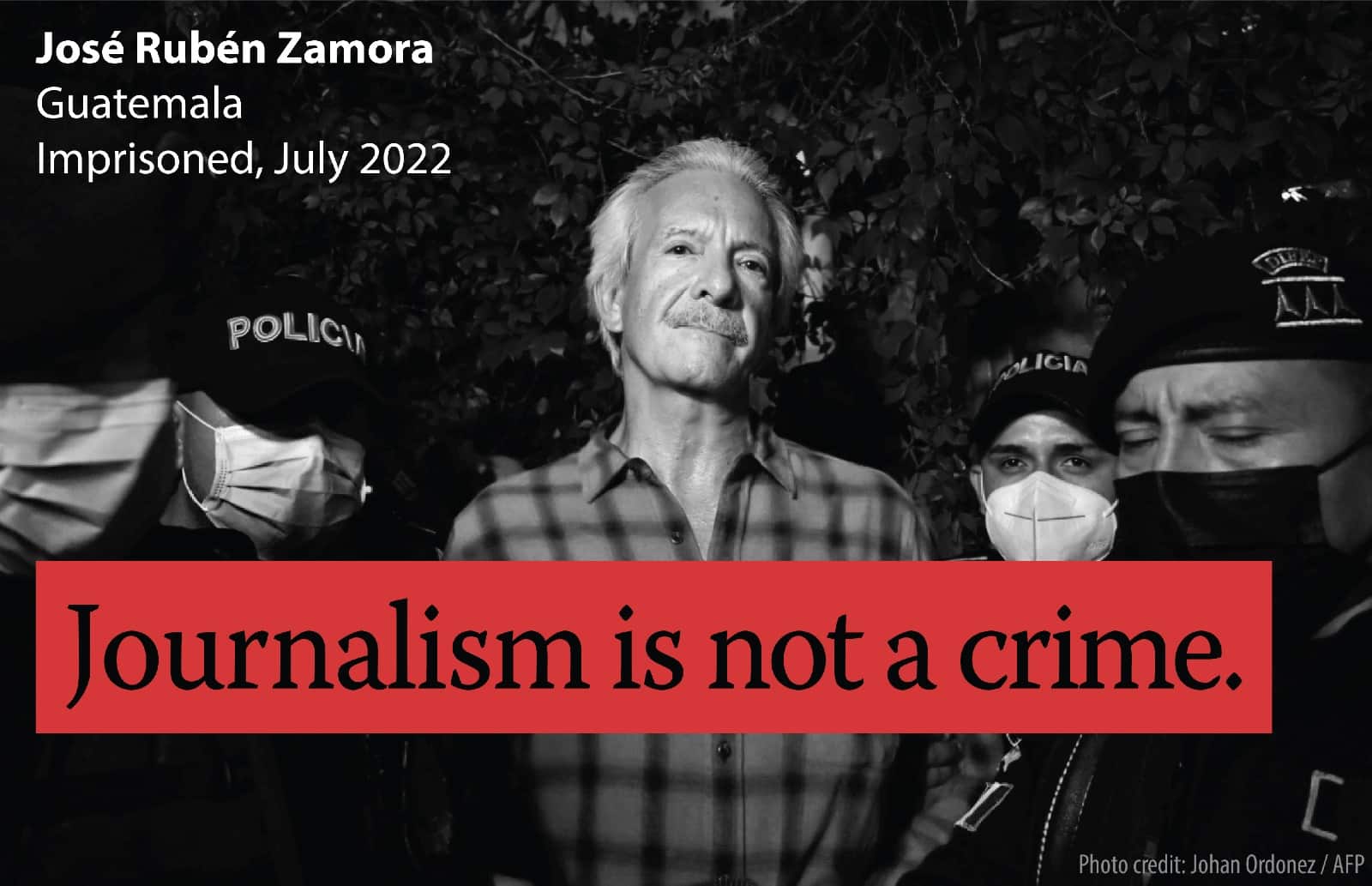Introduction
In recent years, Guatemala has experienced a setback in its democracy, particularly regarding the progress made in the fight against corruption, with a political, economic, and military elite that has reintroduced its model of impunity[1]. This regime gained greater momentum with Jimmy Morales’ government and has grown with Alejandro Giammattei’s administration, which represses, censors and silences critical voices. The media, journalists, communicators, human rights defenders, and justice operators are attacked when they oppose this structure.
The civic space has been stifled by the increase in attacks on the press and by the absence of the role of the State as guarantor of a violence-free environment in the defence of human rights, along with the strong interference that these elites exert in various areas of the state, mainly in the judicial branch. As a parallel power structure, elites directly influence judicial decisions and affect the impartiality of the system. In addition, this structure harasses and criminalizes journalists and communicators in both the physical and digital spaces, with the intention of silencing them.
Given this worrying situation and considering the elections held on June 25, various international organizations created a mission to oversee freedom of expression and of the press in Guatemala. The elections were general, which means that citizens voted for presidential authorities, councils, municipal mayors, and councillors[RR1] .
The mission aimed to analyse and make visible the violence and hurdles faced by journalists and communicators in the country, especially in the pre-electoral context. This report seeks to amplify their findings and the voices of journalists in Guatemala, while offering pertinent recommendations.
The mission was comprised of following international organizations: Article 19 Office for Mexico and Central America, Freedom House, Free Press Unlimited (FPU), Protection International Mesoamerica, Reporters Without Borders (RSF), Committee to Protect Journalists (CPJ), Fundamedios and the Foundation for Press Freedom (Fundación para la Libertad de Prensa – FLIP), in partnership with the regional networks IFEX-ALC and Voces del Sur.
From May 3rd to 17th, 2023, interviews were conducted with journalists and analysts in different parts of the Guatemalan territory and in exile. A total of 67 journalists were interviewed, with 15 located in different countries and 52 from various departments [provinces] of Guatemala, along with 12 civil society organizations. The mission presented preliminary findings to certain members of the international community.
Meetings were also held with some government entities, including the Procurator on Human Rights (PDH), the Presidential Commission for Peace and Human Rights (COPADEH) and the Office of the Special Prosecutor for Crimes against Journalists of Quetzaltenango, which has coverage in 8 departments of the country. It is worth mentioning that the Presidency’s Secretariat of Social Communication did not respond to the mission’s request for a meeting; the Supreme Court of Justice ended up not confirming the requested appointment and the Supreme Electoral Tribunal did not grant an appointment.
The conversations with journalists were mainly conducted as focus groups. Participants shared their experiences and analysis on their practice of freedom of press in Guatemala. This report presents the findings and conclusions resulting from the observation mission. It also outlines the challenges faced by journalists and communicators, as well as the underlying causes of the current situation of freedom of expression in the country.

